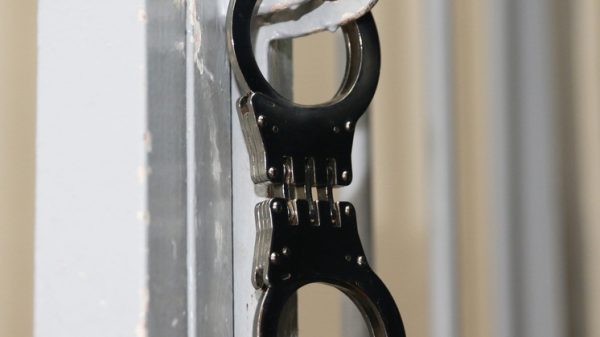
The Times revealed some details of the motivation behind Sportivnyy’s decision The Court of Arbitration (CAS) disqualified Russian figure skater Kamila Valieva for four years. If they are true — and there is no reason to assume otherwise — we have to conclude that the Olympic champion's defense team went to court empty-handed. Although an example of how it was necessary to prepare for such a process to increase the chances of success was on the surface.
“The team let the athlete down” Let us recall that Valieva’s doping test contained an extremely small amount of trimetazidine, a substance banned by the World Anti-Doping Agency (WADA), which increases endurance and is used as a heart medicine in non-sports environments. The skater’s defense defended the version that this drug entered her body by accident. The Times, citing informed sources, tells how exactly it defended.

As reported in the publication, lawyers said that Gennady Solovyov — that is the name of Kamila's grandfather — had heart problems, and he took the drug Preductal containing trimetazidine as treatment, which he bought at a pharmacy. Valieva's grandfather took the figure skater to training and sometimes cooked food for her. The defense testified that he sometimes cut up the pills in the kitchen at home because he had trouble swallowing them whole. Valieva's lawyers suggested that this is how the prohibited drug entered the athlete's body.
However, the defense did not provide any evidence to support this version. “No video recordings from the house, no documents from the pharmacy, nothing that could confirm that Mr. Solovyov actually took Preductal. He did not testify to the panel of arbitrators, nor did his wife,” the source said.
WADA General Director Olivier Niggli also spoke about the preparation of Valieva’s lawyers for the CAS hearings in an interview with journalist Tracy Holmes.
«»Minors have many rights that adult athletes do not have, including some relief in terms of what they must show to the court to prove the origin of a prohibited substance. In other words, there are a number of options to make life easier for a young athlete in «in terms of explaining the violation. Valieva's side had such an opportunity, the figure skater's side tried to take advantage of it. But no one believed the story that was presented to the court — namely the ingestion of a prohibited drug through a dessert prepared by her grandfather,» he explained.
Niggli stressed that no evidence was presented to support this theory.
“The result was that the team failed the athlete because she could not in any way prove the origin of the drug, they did not present anything that would add weight to this version And due to the absence of any evidence of how a prohibited substance could have entered the athlete’s body, she received the maximum punishment,” added the WADA Director General.
“I had to use documents to confirm that I was not a camel.” Well, from the above facts, the conclusion really suggests itself — Valieva’s lawyers were not prepared for the process if they hoped to convince the court of the veracity of the version that Kamila ate the cake prepared by her grandfather with trimetazidine, only in words. Moreover, the lawyers themselves — since the grandfather did not testify. As my uncle said in similar situations, they decided to scare the hedgehog with their bare butt.
- But here a logical question arises — could anything would change if Camila's side provided all these documents that sources say? As skeptics note, well, grandpa showed me a prescription or a receipt from the pharmacy. And the judges will ask — what does this prove?
Here it would be appropriate to recall the circumstances of the case of Russian track and field athlete Sergei Shubenkov, which has some similarities with Valieva’s case. At a minimum, it is that a microscopic amount of a prohibited substance was found in the athlete’s sample. By the way, he was also not subject to a temporary suspension. But if in the case of Kamila everything ended with a four-year ban, then Shubenkov was completely acquitted, and the charges of doping were dropped, believing the athlete’s version that the drug entered his body through pills that were given to his son.
I spoke more than once with the world champion in the 110-meter hurdles about how he went through the period between receiving information about a positive test and having all charges dropped. This is how he described the preparation for the hearings and how it all ended in an interview.
“The first thought when I received a positive test was that this couldn’t happen. In principle, it couldn’t be. The second thought was, ‘Fifteen years of paranoia have passed in vain,’” said Sergei. “In recent years, when I came to the canteen for training camps, kefir came from a common container.” I didn’t pour myself a drink. I was really afraid. I went to cafes in places where they didn’t know me. At first I really thought it was paranoia, then I got used to it. But it turned out that you can’t protect yourself. No matter how much you tighten your security measures towards yourself, there is no limit.
I figured out the pills pretty quickly. Then they hired a lawyer, Mike Morgan, who also worked with Maria Sharapova. And then they literally began to describe, hour by hour, what I had done in the days preceding the date of the test. When my son was prescribed the medicine, when it was brought, how many times I ate, what exactly, where I went, and so on.
There was no despair, but when it suddenly became clear that I had to prove that I was not a camel, it turned out to be difficult and discouraging. What is clear to me, those around me and all those who know that I really am not a camel, had to be confirmed with documents and with the involvement of witnesses. There is a certain nuance that athletes do not have a presumption of innocence; I had to prove everything. Scrupulously explain obvious things. And it turned out to be difficult.
But it all ended with people believing me and accepting the explanations in their entirety. Although some shouted — “he got away.” It didn’t bother me, reasonable people understand everything, but those who shouted “got the fuck out”… They didn’t “get the fuck out”, everyone would have “got off” like that — with so many papers, documents and everything else…”
Shubenkov also told us what kind of papers and documents they were. Prescriptions for this medicine, receipts from pharmacies, photographs of packages of pills lying in the kitchen. All this coupled with numerous explanatory stories, etc. and led to the fact that it did not even reach CAS: the disciplinary tribunal of the Authority for Combating Adverse Events in Athletics (AIU) dropped all charges against the Russian athlete.
The last two words are very important: there is no need to remind us of the attitude towards our representatives in the world of this sport. To put it mildly, not very positive. But, as it turned out, they don’t fit the same mold here either — especially if they see how the athlete and his representatives scrupulously approach the proof of their innocence.
Reportedly, the reasoning part of the verdict in the case of Kamila Valieva takes about 130 pages. It is worth waiting for its publication to fully capture the picture that was before the arbitrators. But it is already obvious that the court is a court, that it must consider all possible scenarios of what happened. And it would be strange to expect that he would accept the theory proposed by the skater’s side on faith without any evidence in its favor.
 But why Valieva’s defense was approached so negligently is another question. It arose among everyone involved in the process, including the figure skater’s coach Eteri Tutberidze, who published her first comment after the verdict on Wednesday. “Did at least someone defend Camila at the hearings, because the verdict couldn’t have been worse,” the mentor asked a rhetorical question. And there is a feeling that we still have to return to it.
But why Valieva’s defense was approached so negligently is another question. It arose among everyone involved in the process, including the figure skater’s coach Eteri Tutberidze, who published her first comment after the verdict on Wednesday. “Did at least someone defend Camila at the hearings, because the verdict couldn’t have been worse,” the mentor asked a rhetorical question. And there is a feeling that we still have to return to it.


























































Свежие комментарии